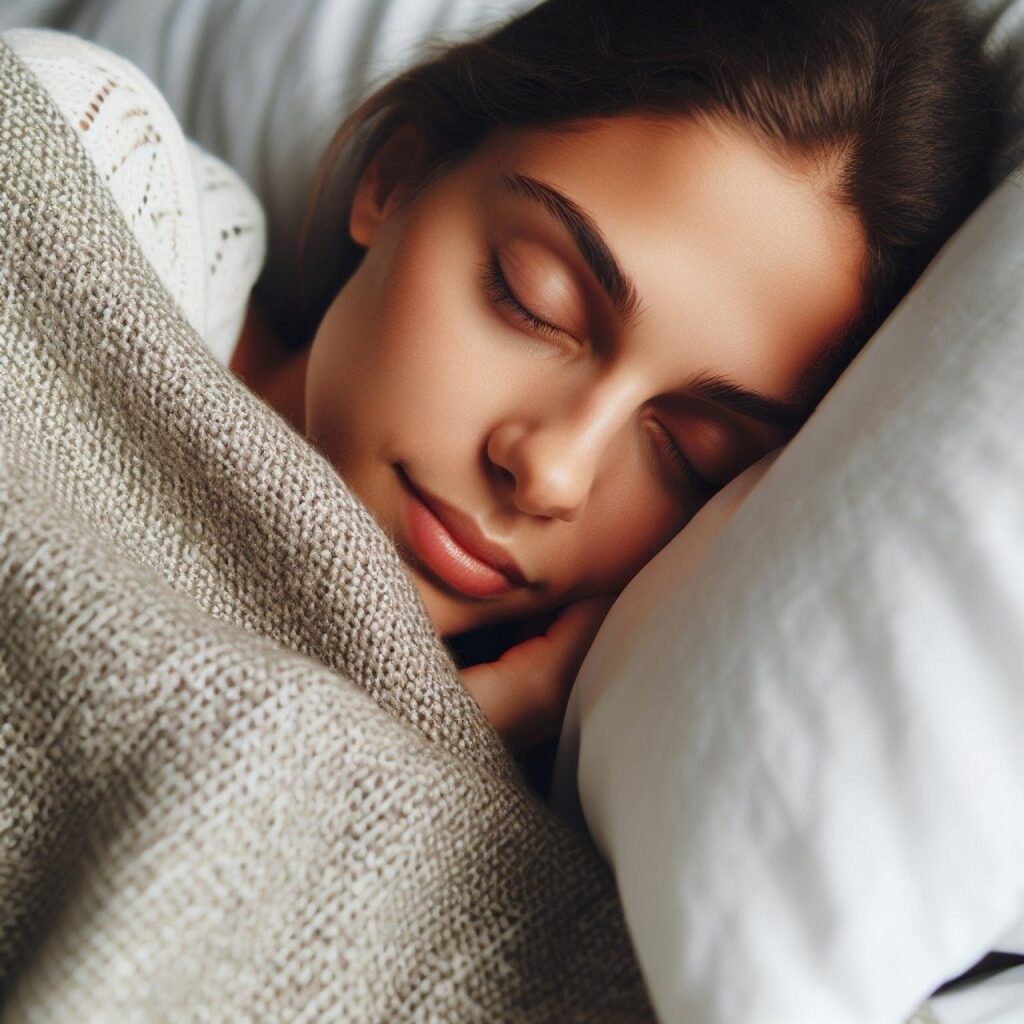Sleep is a naturally recurring state of mind and body characterized by altered consciousness, inhibited sensory activity, reduced muscle activity, and inhibition of most voluntary muscles. Sleep It is a vital biological process that plays a crucial role in physical health, mental well-being, and overall functioning. Here are some key aspects of sleep:
Key Components of Sleep
- Sleep Stages:
- Sleep is divided into two main types: Non-REM (Rapid Eye Movement) and REM sleep.
- Non-REM Sleep: This consists of three stages (N1, N2, N3):
- Stage N1: Light sleep, where a person drifts in and out of sleep.
- Stage N2: Deeper sleep, characterized by sleep spindles and a decrease in heart rate and body temperature.
- Stage N3: Deep sleep (also known as slow-wave sleep), essential for physical recovery and growth.
- REM Sleep: This stage occurs after about 90 minutes of sleep, characterized by rapid eye movement, increased brain activity, and vivid dreaming. It is believed to be crucial for memory consolidation and emotional regulation.
- Non-REM Sleep: This consists of three stages (N1, N2, N3):
- Sleep is divided into two main types: Non-REM (Rapid Eye Movement) and REM sleep.
- Sleep Cycle:
- A complete sleep cycle lasts about 90 minutes and typically consists of moving through the stages of Non-REM and REM sleep. Most adults experience multiple sleep cycles during a typical night, usually 4-6 cycles.
- Sleep Duration:
- The recommended amount of sleep varies by age:
- Adults: 7-9 hours per night
- Teenagers: 8-10 hours
- Children: 9-12 hours
- Infants: 12-16 hours (including naps)
- The recommended amount of sleep varies by age:

Importance of Sleep
- Physical Health:
- Sleep is essential for various bodily functions, including:
- Immune Function: Adequate sleep helps maintain a strong immune system.
- Metabolism: Sleep affects the hormones that regulate appetite and metabolism.
- Cell Repair and Growth: Deep sleep is when the body repairs tissues and builds muscle.
- Sleep is essential for various bodily functions, including:
- Mental Health:
- Quality sleep contributes to emotional well-being and cognitive functions, such as:
- Memory Consolidation: Sleep helps process and store memories from the day.
- Mood Regulation: Lack of sleep can lead to irritability, anxiety, and depression.
- Quality sleep contributes to emotional well-being and cognitive functions, such as:
- Cognitive Function:
- Good sleep enhances focus, decision-making, and problem-solving abilities. Sleep deprivation can impair cognitive performance and increase the risk of accidents.
- Physical Performance:
- Athletes and physically active individuals benefit from sleep, as it aids in recovery, enhances performance, and reduces the risk of injury.
Factors Affecting Sleep
- Sleep Environment:
- A quiet, dark, and cool environment promotes better sleep quality. Comfortable bedding and minimal distractions also contribute to restful sleep.
- Lifestyle Choices:
- Factors such as diet, exercise, caffeine and alcohol consumption, and screen time can influence sleep quality. Regular physical activity and a balanced diet support better sleep.
- Stress and Anxiety:
- High-stress levels and anxiety can interfere with the ability to fall asleep and stay asleep. Practicing relaxation techniques can help improve sleep.
- Health Conditions:
- Conditions such as sleep apnea, insomnia, and restless leg syndrome can disrupt sleep patterns and affect overall health.

Conclusion
Sleep is a fundamental aspect of human health and well-being. Prioritizing good sleep hygiene—establishing a consistent sleep schedule, creating a comfortable sleep environment, and managing stress—can significantly improve sleep quality and contribute to overall health. Understanding the importance of sleep and addressing factors that affect it is crucial for maintaining physical, mental, and emotional well-being.

